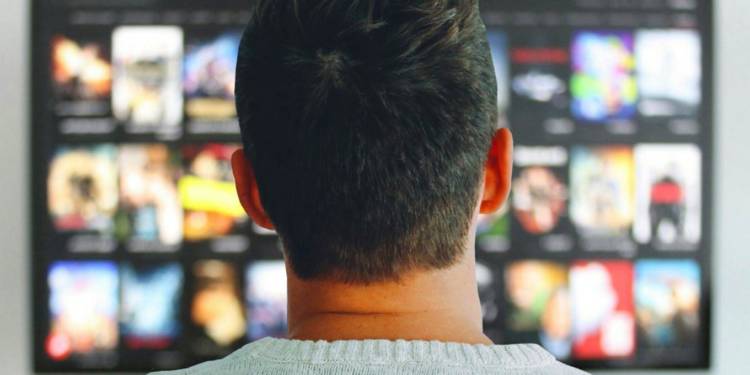The world has come a long way from waiting in desperation for television daily soaps which were usually aired one episode per day, or even per week, to now continuously watching episodes of various shows that are available on over-the-top (OTT) media platforms like Netflix, Amazon Prime, etc. The problem however, is the fact that these platforms have now begun adversely impacting the health of users.
A study by HealthifyMe, a mobile health and fitness app has found that sleep deprivation due to video streaming on these OTT platforms is a major cause of health related anomalies. The app’s survey was conducted among 500 nutritionists and trainers to gauge the diet and workout trends of Indians in 2019. “Over 50% of our nutritionists highlighted sleep deprivation due to streaming services as one of the top three social trends that affected the physical well-being of their clients in 2019,” a HealthifyMe spokesperson told Quartz, where this report first appeared.
Sleep deprivation due to OTT platforms was the third most significant factor which made Indians unhealthy in 2019, the top two being long working hours and easy access to packaged food respectively.
Netflix and Amazon Prime beyond doubt are the two main culprits. Binge-watching, a phenomenon which is now increasingly finding practice among people of all ages, from millennials to the middle-aged, is one which has come about being due to these two platforms. Before them, the phrase was not even used in daily conversations. However, the same has now been accepted as a part and parcel of our lives. A whooping 51.6% Indians faced health problems due to sleep deprivation caused by binge-watching, the study further found.
Shows like Game of Thrones, Sacred Games, Peaky Blinders, House of Cards among others, and also the availability of games like football and cricket on these platforms has led to Indians sleeping much less, much to their own detriment. For those who have watched any one of the shows mentioned above, it isn’t a tough call to concur to the fact that they are highly addictive. Firstly, the beginning and ending of each episode is made very thoughtfully, with the aim to make the audience want more almost immediately. As a result, if the viewer finds the ending interesting, he/she jumps to the next episode without much thought, almost unconsciously. Having started the next episode, the viewer then finds the initial moments very clinging, and is thus trapped in a cycle designed to keep the viewer in an ever-watching mode.
Also, the feature of autoplay is a major cause of binge-watching. The automatic transition from one episode to the next makes the viewers watch much more than their limit. India also now has among the world’s cheapest internet data services, and that has also proven to be a major factor which contributes to people recklessly watching digital shows without any limits. One can easily watch four to five episodes of a show on Netflix on a 2GB/day pack.
Barring millennials, all others tend to watch shows on OTT platforms after they get home from work. Which is, in all likelihood, at night. After working long hours, while the body naturally needs rest, what the brain is instead fed with is a repetitive process of continuous video streaming.
While eight hours of sleep is a pleasure you should avail, many spend that time binge-watching. A compromise on sleep can have far-reaching consequences, usually detrimental. Four hours of sleep loss produces as much impairment as consuming a six-pack of beer. Research also found that after 17 hours without sleep, our alertness is similar to the effects of a blood alcohol concentration of 0.05%. This, at least in the United States is considered an impairment. Now that is a gamble one would not like to indulge in.
The excess of anything has negative consequences. Watching content on OTT platforms is by no means discouraged, however, one must know when to draw the line. When binge-watching comes at the cost of us compromising on essential hours of sleep, which is the time when the body needs to get rid of the brain poop for our very own benefit, we must make the next episode of any show wait. It’s the least we owe ourselves.



























